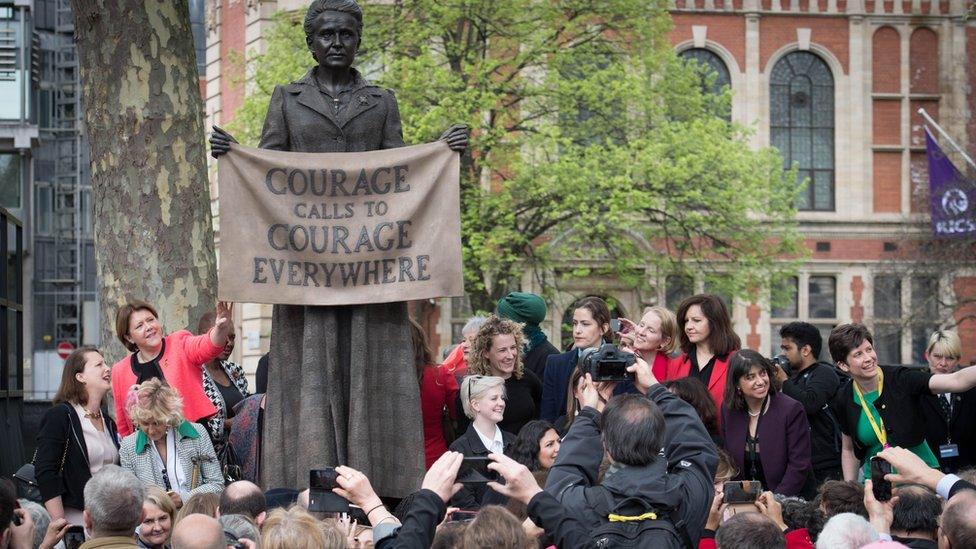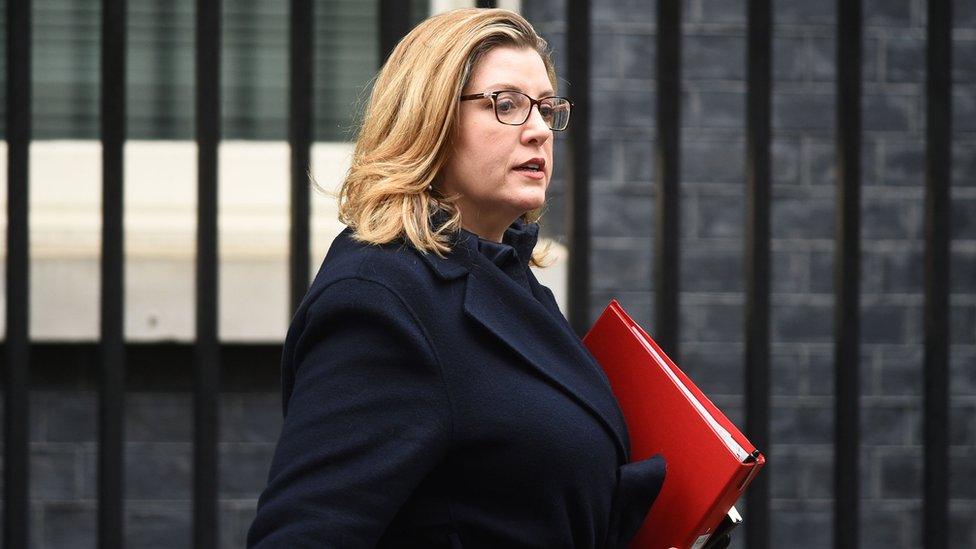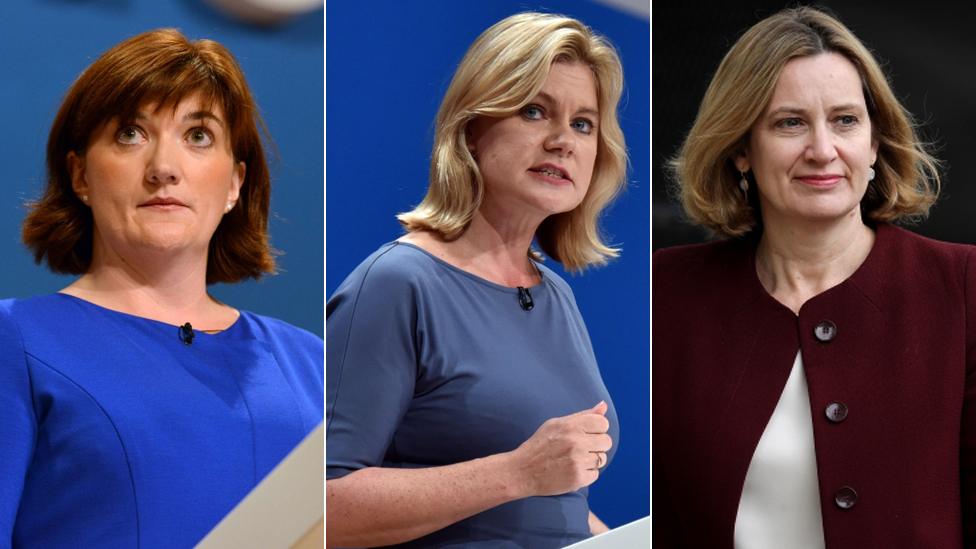Why does the women's minister keep changing?
- Published

Maria Miller - pictured left at the unveiling of a statue of suffragist Millicent Fawcett - said "consistency" was needed in the equalities brief
There's nothing new about ministers moving jobs - but recently nobody has changed more than the person in charge of women and equalities.
When Amber Rudd quit the government last month, International Development Secretary Penny Mordaunt became the fourth women and equalities minister in less than two years, and the seventh since 2010.
Now a committee of MPs is asking whether the constant "merry-go-round" is affecting the work of the unit responsible for government policy on women, sexual orientation and transgender equality.
Maria Miller, who chairs the women and equalities committee, called for "consistency in ministerial responsibility" and questioned the wisdom of moving the brief around different departments.
"The equalities brief is hugely important to the government's agenda of tackling burning injustices," the Conservative MP - who was women and equalities minister between 2012 and 2014 - told the BBC.
"And if this is going to continue to be a top priority then we have to have some consistency in ministerial responsibility."
She said her committee was "really concerned" about the impact of the Government Equalities Office (GEO) constantly moving between Whitehall departments.
"Every time there is a change in ministerial appointment, the GEO changes its location," she said, adding that it was hard to see the "strategic value" of basing it at the Department for International Development.
"It takes two years for a minister to get a firm grip on a brief and in the last two years we have had three secretary of states ... now is a really important opportunity to question this approach."
The role of a minister for women was created under Tony Blair's Labour government and took on its current title when David Cameron became prime minister in 2010.
The women and equalities minister is responsible for policy on women, sexual orientation and transgender equality, as well as the government's overall equalities strategy.

Penny Mordaunt is the fourth women and equalities minister in less than two years
Ms Rudd, who was women and equalities minister for less than five months, replaced Justine Greening - who quit as education secretary in January's reshuffle.
Between 2014 and 2016, the post was held by another education secretary, Nicky Morgan.
Giving evidence to the committee, Ali Harris, the chief executive of the Equality and Diversity Forum network of organisations, said the high turnover had resulted in a "lack of purpose" and lack of time to "establish relationships".
"Lack of time to really go into depth and to engage with the more difficult issues has been a concern," she said, adding that "overall it's quite hard to see what the plan is".

Nicky Morgan, Justine Greening and Amber Rudd have all held the role
Janet Veitch, a former civil servant with the Government Equalities Office, said the upheaval was not a new problem. She experienced six moves of government department in 10 years and said this was "enormously disruptive".
"Things fall off the radar every time there has been a move," she said, asking why equalities was seen as being more "portable" than other policy areas.
"It has moved around. That means you get no real traction in any area."
The job "seems to be something that is just given to a minister, rather than there being a clear sense of what the government wants to achieve" said Gavin Freeguard, of the Institute for Government think tank.
"It is not just about the disruption you get when a new minister comes in - even if it's from the same party, people have very different styles and different priorities."
The select committee is expected to make recommendations to the government on whether to change its approach, with one possible option being to base the Equalities Office inside the Cabinet Office to avoid the administrative changes when ministers are reshuffled.